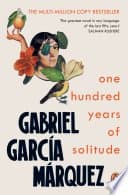Essential Reading Lists: Exploring The Cornerstones of Human Civilization Through Literature
Dive into a curated reading list that reveals the most impactful works of literature, spanning across antiquity, religion, enlightenment, and modernity.

Books Featured in This Article
Explore the books discussed

Essential Reading Lists: Exploring The Cornerstones of Human Civilization Through Literature
A literary journey through the epochs of humanity offers profound insights into our history, culture, and philosophy. Whether you're a history buff or an enthusiastic reader seeking knowledge, these selected works stand as the bastions of human thought and civilization.
Antiquity and Classical Literature
Understanding the foundations of human civilization begins with the earliest literary creations.
1. Epic of Gilgamesh - One of the first great masterpieces, this Mesopotamian epic reveals early human themes of friendship, ambition, and mortality.
2. The Odyssey by Homer - Diving into the epic adventures of Odysseus, this poem is a staple in understanding Greek mythology and heroism.
3. The Iliad by Homer - Another essential epic, offering a detailed glimpse into the Trojan War and its heroes.
4. The Republic by Plato - A groundbreaking text in Western philosophy, addressing justice, governance, and human nature.
5. Nicomachean Ethics by Aristotle - An invaluable guide to ethics and moral philosophy, still relevant today.
Religious and Spiritual Texts
Dive into spiritual texts that shaped entire civilizations and continue to inspire billions.
6. The Holy Bible - Beyond its religious implications, this sacred text is also a cornerstone of Western literature and moral teachings.
7. The Qur'an - Esteemed for its literary elegance and profound spiritual teachings, it’s central to Islamic faith.
8. The Bhagavad Gita - Delve into the spiritual and philosophical dialogue of this key Hindu scripture.
9. Tao Te Ching by Laozi - A vital text in Taoism and an enduring influence on Chinese thought.
Medieval to Renaissance Literature
Examine the shift in human thought during the transition from the medieval period to the Renaissance.
10. Divine Comedy by Dante Alighieri - This allegorical journey explores sins, virtues, and the soul's struggle for redemption.
11. Paradise Lost by John Milton - This epic retells the biblical story of the Fall of Man with profound theological and philosophical insights.
12. The Canterbury Tales by Geoffrey Chaucer - A richly diverse collection of tales providing a glimpse into medieval English life.
Enlightenment and Modern Works
The Enlightenment period's literature reflects a surge in intellectual progress and socio-political critiques.
13. The Wealth of Nations by Adam Smith - This seminal work lays the foundational principles of classical economics and capitalism.
14. The Communist Manifesto by Karl Marx and Friedrich Engels - A crucial political document that shaped the discourse around socialism and class struggles.
15. Atlas Shrugged by Ayn Rand - A narrative exploring individualism, capitalism, and the role of government in society.
16. 1984 by George Orwell - This dystopian novel is a chilling critique of totalitarian regimes and surveillance societies.
Globally Influential Literature
Discover literature that has had a powerful impact beyond its culture of origin.
17. The Tale of Genji by Murasaki Shikibu - Often cited as the world's first novel, this classic work offers a stunning insight into Japanese culture and court life.
18. One Hundred Years of Solitude by Gabriel Garcia Marquez - A monumental work in magical realism and Latin American literature.
19. Things Fall Apart by Chinua Achebe - An essential read that depicts Igbo society and the impact of colonialism in Nigeria.
20. Journey to the West by Wu Cheng'en - One of China's Four Great Classical Novels, rich in mythological and historical themes.
Modern and Contemporary Works
A celebration of modern literature that continues to shape contemporary thought and culture.
21. For Whom the Bell Tolls by Ernest Hemingway - A gripping narrative set against the backdrop of the Spanish Civil War, exploring themes of love and honor.
22. The Old Man and The Sea by Ernest Hemingway - This novella tells a powerful tale of perseverance and human spirit.
23. Of Mice and Men by John Steinbeck - A poignant exploration of friendship and hardship during the Great Depression.
24. Blood Meridian by Cormac McCarthy - A stark portrayal of the brutal American West and human violence.
25. The Brothers Karamazov by Fyodor Dostoevsky - An intricate narrative exploring faith, doubt, and family dynamics.
Curating such a diverse list caters not only to history enthusiasts but also to anyone yearning for a well-rounded education through literature. These works serve as powerful lenses that reflect human civilization's complexities from multiple viewpoints.
Key Takeaways
Pros
- Provides deep insights into human history, culture, and philosophy from various eras and regions.
- Includes foundational texts that are crucial for understanding the development of Western and global thought.
- Offers a well-rounded education in literature, catering to diverse interests and enhancing cultural literacy.
- Includes works that explore a wide range of human experiences, moral dilemmas, and societal issues.
- Covers a variety of literary styles and genres, providing a rich and varied reading experience.
- Helps readers gain valuable perspectives on different cultures, philosophies, and historical periods.
Cons
- Some works may be challenging to read due to archaic language, complex themes, or historical context.
- The sheer breadth of the list may be overwhelming for some readers, making it difficult to know where to start.
- Understanding some texts might require additional resources or annotated editions to fully grasp their meanings.
- The list is extensive, and it might be time-consuming to read and comprehend the entirety of the recommended works.
Frequently Asked Questions
About the Author

Book Junkie
Your go-to source for book reviews and recommendations.
You Might Also Like
Related Books
Related Articles

Transformative Reads for Teens: Navigating Life at 17
Discover the power of literature with our curated list of essential books for 17-year-olds. From fiction that inspires self-discovery to empowering non-fiction, these reads provide guidance and comfort during the tumultuous teen years. Uncover the wisdom

Unlocking the Secrets of Dark Academia: A Must-Read List
Dive into the enchanting realm of dark academia with our curated list of gripping novels that explore obsession, psychological intricacies, and haunting atmospheres. Perfect for readers seeking literary adventures akin to films like *Kill Your Darlings* a

Unlocking New Chapters: Inspiring Books for Readers in Their 50s
Discover a curated list of transformative fiction and non-fiction books designed for readers in their 50s. Embrace change, find inspiration, and celebrate life's possibilities with these insightful reads.

Unlocking the Secrets of Monastic Life: 12 Novels Rich in Religious Intrigue
Dive into the captivating world of ancient monasteries and religious power struggles through our curated selection of novels. Discover tales that will enrich your understanding of history while satisfying your love for literary intrigue.



